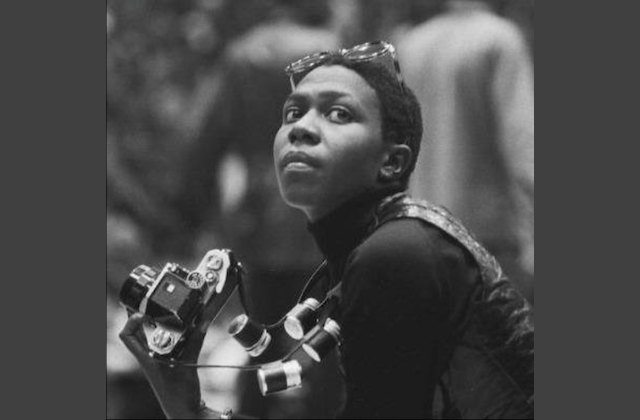Activist and philanthropist Afeni Shakur is dead at the age of 69. Marin County Sheriff Department officials tweeted last night (May 2) that officers reported to her Sausalito, California, home in response to a possible heart attack. They took her to a local hospital where she died at 10:28 p.m. PST. An autopsy will be conducted to determine exact cause of death.
An entire generation was first introduced to Shakur (born Alice Faye Williams in 1947), through her son Tupac’s 1995 song “Dear Mama,” where he told stories of his childhood and broke down how much he loved and respected his mother:
I wish I could take the pain away
If you can make it through the night there’s a brighter day
Everything will be alright if you hold on
It’s a struggle every day, gotta roll on
And there’s no way I can pay you back, but my plan
Is to show you that I understand
You are appreciated
But long before she was known as the emcee’s mother, she was a standout activist in her own right. Shakur joined the Black Panther Party (BPP) in the ’60s. In her biography, “Afeni Shakur: Evolution of a Revolutionary,” written by actress Jasmine Guy, she tells the story of how she came to the BPP:
It’s Saturday in Harlem and Bobby Seale’s in town. Anybody who’s anybody speaks on the corner of Seventh Avenue and 125th Street. Malcolm spoke at that corner, Marcus Garvey spoke there, Jomo Kenyatta spoke there. I’m telling you this is where you go to speak your mind and hear the word. So Bobby Seale’s going to be there and I go just like everybody else goes. There are all kinds of folks there—mothers, hustlers, teachers, domestics and kids, gangsters—all of us on that corner listening to Bobby Seale. He says the Panther Party is opening offices in New York, that they are coming and bringing change and order to our community, coming to heal the wounds of slavery and Jim Crow, coming to take arms against the aggression. They will not beat our ass anymore!
Well, I have never heard nothing like that before. Then somebody on the platform next to Bobby Seale holds up a photograph. It is a picture of Huey Newton on the steps of the California state capitol, armed and standing tall. I see that picture of a Black man armed and looking the White man in the eye and saying, “No not laying down and getting stomped on over and over again.” When I see that! That is a powerful image for me.
And then Bobby Seale says the Ten Point Program of the Black Panther Party. Nothing sounds like Bobby Seale when he says the Ten Point Program of the party…. The way he said those ten points made me want that more than anything. So there I was wrapped in my Africanness. For the first time, loving myself and loving, now that there was something I could do with my life. There was now something I could do with all this aggression, and all this fear…. So, the Panther Party for me, at that time, clarified my situation. They took my rage and channeled it against them, instead of us. They educated my mind and gave me direction. With that direction came hope, and I loved them for giving me that…. They took me and looked at me and said, “Afeni, you are strong, so use your strength to help the weak. You are smart, so use your mind to teach the ignorant.” And that’s what I did.
Then in April 1969, she and 20 other BPP members—collectively called the Panther 21—were arrested and charged with conspiracy to bomb New York City landmarks. Shakur represented herself at trial, earning an acquittal on all charges after serving a total of 11 months in jail. After her son’s death in 1996, she dedicated herself to philanthropy, creating the Tupac Amaru Shakur Foundation to provide arts training and college scholarships for students.
Watch the video for “Dear Mama” below, which includes footage of Shakur talking about how she was acquitted just one month shy of Tupac’s birth.
